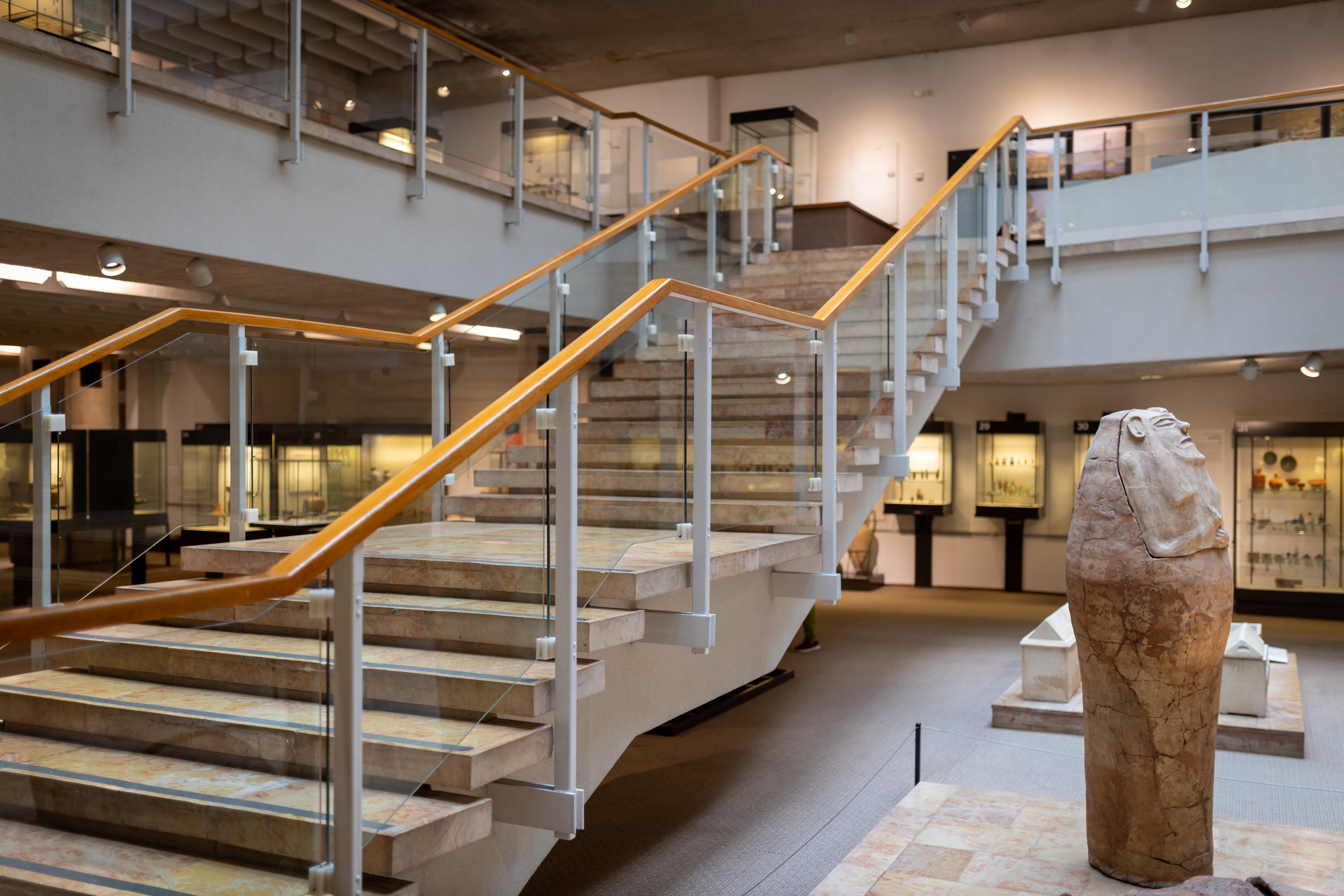Haifa Museum, Archeology
Only in Israel: Haifa Museum welcomes back child who shattered ancient jar
A 3,500-year-old artifact shatters, but leads to a lesson in archaeology and forgiveness.

In a moment that could have ended in disaster, the Hecht Museum in Haifa, Israel, has turned an accident into an opportunity for education and community outreach. Last week, 4-year-old Ariel Geller accidentally broke a 3,500-year-old jar that had been on display for 35 years. The Bronze Age artifact, dating back to between 2200 and 1500 B.C., was one of the few containers of its size from that period still intact.
The incident occurred during a family visit to the museum. Anna Geller, Ariel's mother, described the moment: "It was just a distraction of a second. And the next thing I know, it's a very big boom boom behind me." The jar, likely used to hold wine or oil, was left in pieces on the museum floor.
Instead of banning the family or pressing charges, the museum invited the Gellers back for a follow-up visit. On Friday, Ariel returned with a clay vase of his own to gift to the museum, where he was greeted by forgiving staff and curators.
Inbal Rivlin, the museum's director, saw the incident as a chance to educate. The Hecht Museum's philosophy of allowing visitors to explore history without glass barriers remains unchanged. "I wanted to use the restoration as an educational opportunity," Rivlin stated.
The museum's approach aligns with the views of Roee Shafir, a restoration expert working on the jar. Shafir believes that public access to artifacts, despite the risks, can inspire deeper interest in history and archaeology. "I like that people touch. Don't break, but to touch things, it's important," he said.
Experts are now using 3D technology and high-resolution videos to restore the jar, which could be back on display as early as next week. The restoration process itself has become a point of interest for the Geller family's older children.
The incident has resonated beyond the museum walls. The Geller family, from Nahariya in northern Israel, has been visiting museums and taking day trips around the country this summer to escape tensions related to the ongoing conflict with Hezbollah near the Lebanese border.
This small act of forgiveness and education is a beautiful demonstration of how patience, understanding, and a commitment to learning can turn even the most fragile moments into opportunities for growth.
* CNN contributed to this article.